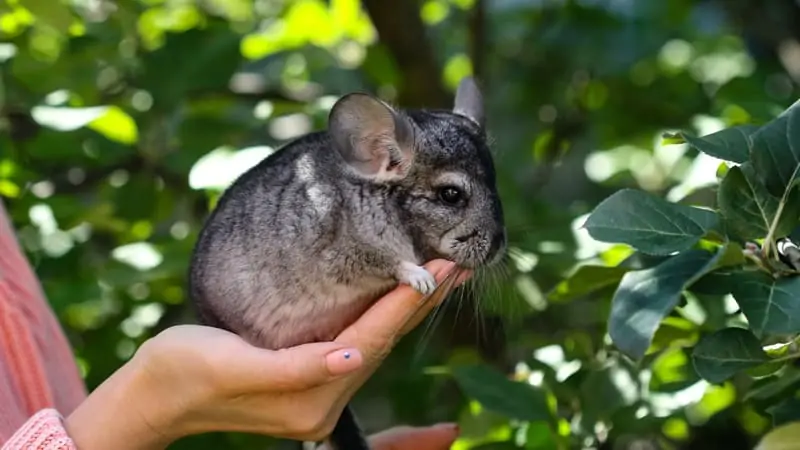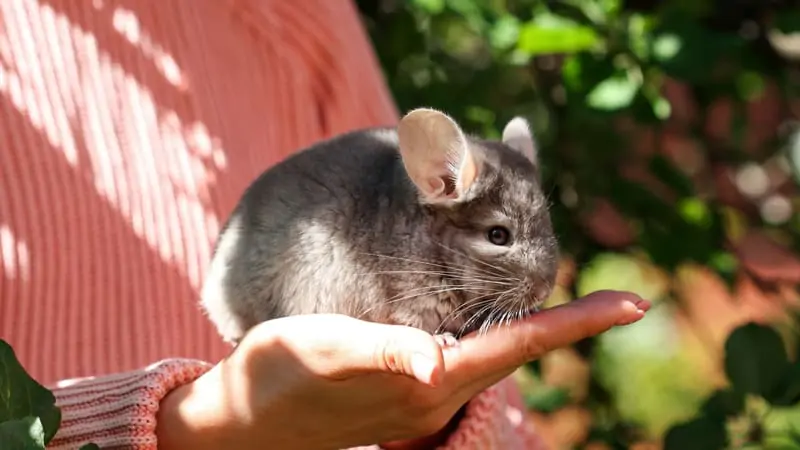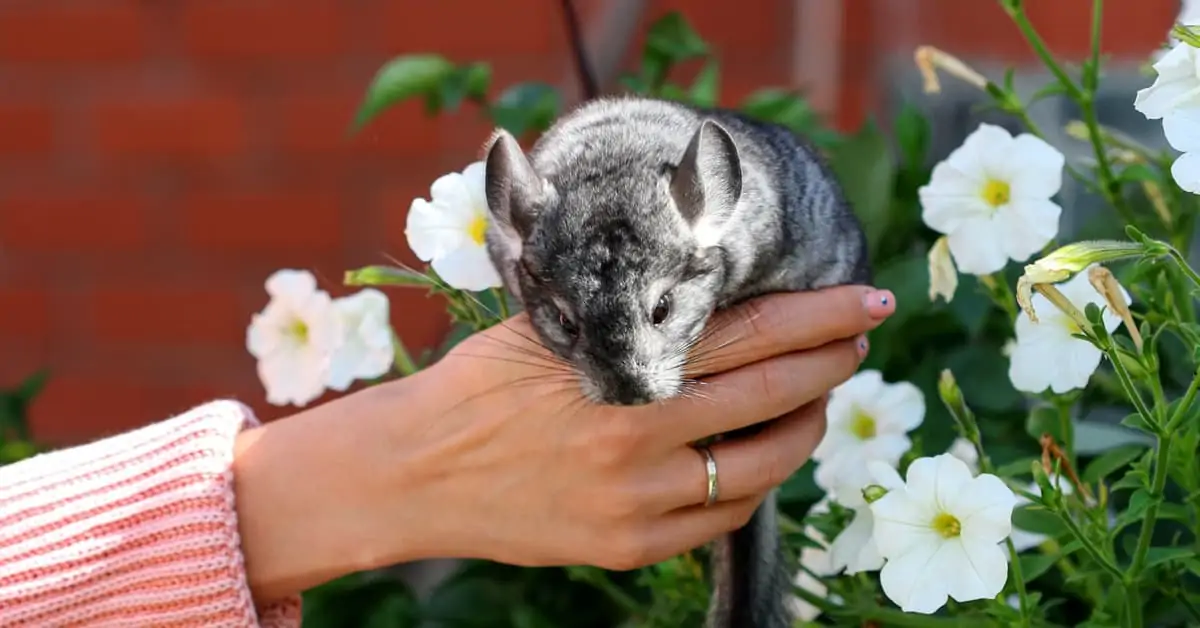Chinchillas are small fluffy animals that are local to the Andes Mountains in South America. With the proper care, your chinchilla can live for up to 20 years. But, since proper care includes feeding, how long can chinchillas go without food if you have to be away for a while?
Chinchillas need to eat constantly because of their sensitive digestive systems, and should not go without food for more than a few hours. These animals eat about 60 meals in 24 hours – an average of one meal per 24 minutes. Going 12 hours without eating would require a vet to administer critical care to a Chinchilla.
This article will discuss the length of time you can leave your chinchilla alone and the measures to put in place before doing so. I will also look at how long chinchillas can go without food and how often they need to eat.
Can I Leave My Chinchilla Alone for a Week?

Ideally, you should not leave your chinchilla alone for over one day. However, what is ideal differs from what people practice, and opinions vary from one pet owner to another. Owning a pet should not confine you to one location.
One week is too long to leave your chinchilla completely alone. Even with adequate food, water, and play materials to keep them active, 72 hours is the maximum time you should leave your chinchilla alone. With a pet-sitter, you can leave your pet for as long as it is necessary.
You may be anxious about leaving your little baby alone for a few days. Don’t worry so much because although your pet will miss you, chinchillas are quite self-sufficient. They will do what they need to do by themselves while you are away.
Measures to Take Before You Travel
There are some preparations to make for your chinchilla’s safety and well-being in your absence. Of course, the duration of your absence determines the preparation you should make. Here is what you should do:
Set out enough food and water
For a weekend trip, fill your chinchilla’s bowl with pellets. If the food bowl is small, fill two bowls. Chinchillas can self-regulate food intake, so don’t worry about them overstuffing themselves.
Provide fortified seed mix and extra hay cubes (for food and playing.) Clean out the water bottle and refill it before you leave. Chinchillas do not drink a lot of water. Keep a few treats hidden for them to forage.
Set the Temperature Right
To prevent overheating and its dire consequences, chinchillas thrive between 10℃ and 19℃. If you use an AC, set it accordingly and pray that it functions correctly. You can also open the door to the room your chinchilla’s cage is in for good ventilation.
Also, prepare enough beddings to keep them comfortable.
Extra Hands for Care
For brief trips, you can forgo a pet-sitter. But for longer trips, someone must take care of your chinchilla daily. Preferably, get a friend or family member who is familiar with your chinchilla and knows what to do.
Your chinchilla’s cage needs to be spot-cleaned daily so it doesn’t become too dirty. Another advantage of having someone care for your chinchilla is ensuring its safety, that it is without injury/illness, and has someone to interact with. The temporary caregiver can also change food and water because, ideally, they should be served fresh daily.
With these measures in place, you can take your trip and not worry about your pet. The only exceptions to being completely left alone are pregnant and baby chinchillas (kits.)
Pregnant chinchillas are more prone to health problems that may need to be addressed immediately. Kits are also curious at that age, and they could easily get into sticky situations.
How Long Can Chinchillas go Without food?

A chinchilla that stops eating will pass away quickly. The major reason a chinchilla will not eat or reduce its intake is a health reason. The digestive tracts of chinchillas are extremely delicate, and they must work often.
Similar to guinea pigs and rabbits, Chincillas have to eat constantly, at an average of about 60 small “meals” in 24 hours. If they do not eat in this way, they can become gravely ill and die.
Chinchillas should never go without food. If by some error they could not eat (e.g., they got missing at home) and a lot of time has elapsed, get them to a vet as soon as possible.
How Often Does A Chinchilla Need to Eat?
Both wild and domestic chinchillas are crepuscular. This means that they sleep in the daytime and are active at dawn and dusk. They eat in the same pattern, early in the morning or at night.
Your pet chinchilla may eat twice a day, but it can consume food all day long.
Although they can eat as many small “meals” as guinea pigs and rabbits, they usually eat at a slower pace than the others. Their diet mostly comprises hay, with grass-based pellets, a small number of leafy greens, and an even smaller portion of treats.
Hay provides the roughages they need, and it is also good for chinchillas to gnaw on them. Their teeth grow so fast that they can overgrow and become impacted without the constant gnawing exercise.
Give your pet one or two tablespoons of chinchilla pellets every day. You could split it into morning and night rations or give it at once. Giving out a few pellets at a time helps to maintain the delivery of fresh food. Pellets provide enough protein, fats, and roughage.
Whatever pattern you decide to use in feeding your chinchilla, stick to that routine. They like routines.
In conclusion, you can leave your chinchilla completely alone for a weekend. However, any extended time away requires a chinchilla pet-sitter, family member, or friend to take care of your pet every day. Also, chinchillas should never go without food, and feeding them twice a day is adequate.

